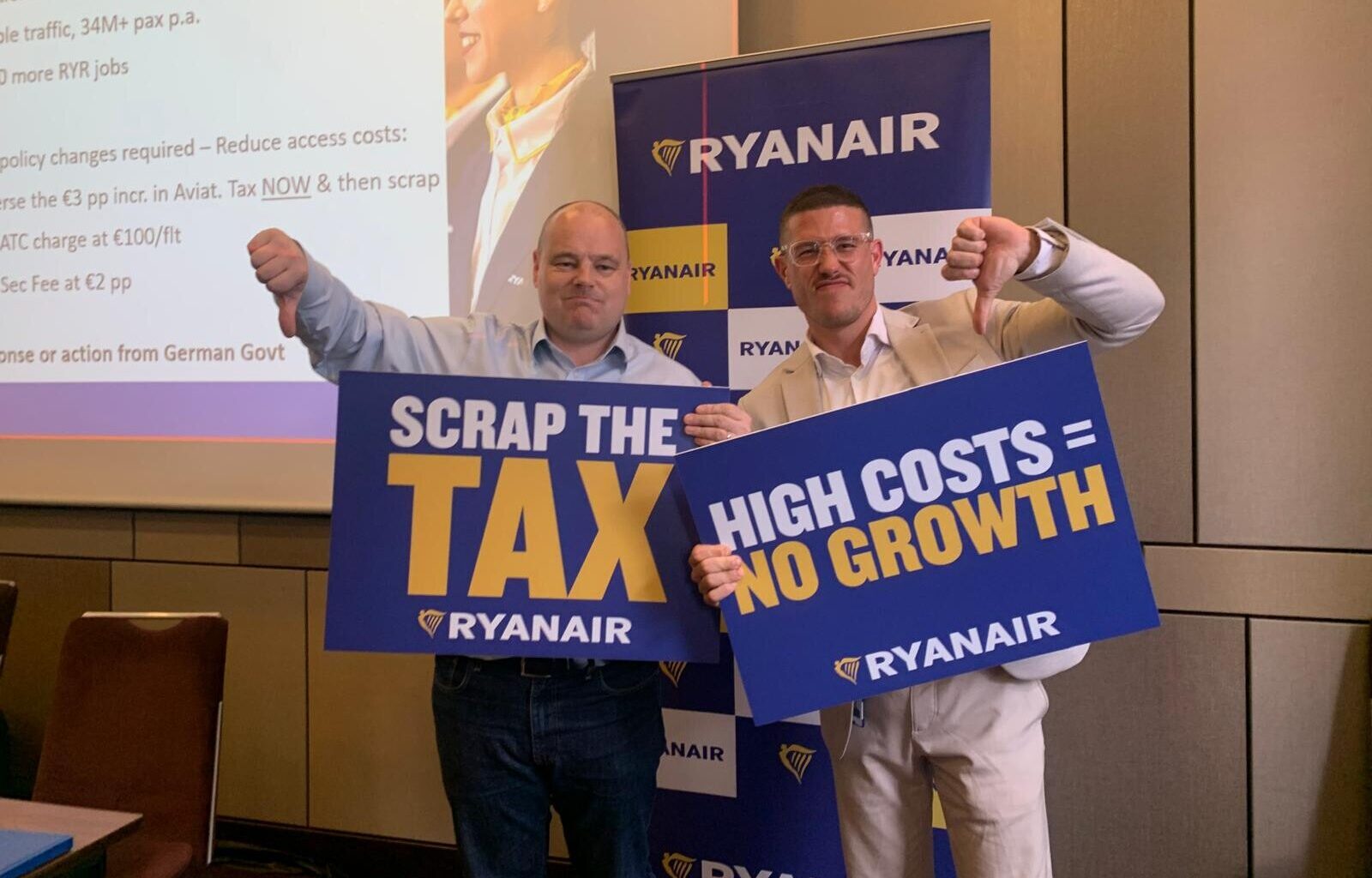Ryanair has announced it is cutting hundreds of thousands of seats and two dozen routes from its German schedules in response to what it calls the German government’s “failure to reduce high access costs.”
In a statement released on 15th October 2025, the carrier said its winter 2025 capacity would be slashed by 800,000 and that it would cease to fly 24 of its routes across nine “high-cost German airports.” That includes Berlin, Hamburg, and Memmingen. The carrier had already closed routes operating to and from Dortmund, Dresden, and Leipzig.
The move sees Ryanair’s winter 2025 capacity drop year-on-year. It comes not only in response to the access costs, such as airport and air traffic control charges, and security fees, but also is a reaction to Germany’s decision to go ahead with aviation taxes it had previously said it would reverse. That combination, Ryanair says, makes Germany “grossly uncompetitive compared to other EU countries.”
The budget Irish carrier contrasted Germany’s policies with Ireland and Poland as nations with no aviation taxes, and noted that Hungary, Italy, and Sweden are scrapping theirs. Bizarrely, it also praised Spain’s lack of aviation taxes, even though it has been in almost constant dispute with the Spanish government and airport operator Aena over their “excessive” costs. After recent cuts to Spanish schedules, competitors stepped in to make up the slack.
Pointing out that Germany “remains among the worst recovered air traffic markets in Europe, operating at just 88% of pre-COVID levels,” Ryanair warned that the cuts would have “a devastating impact on German connectivity, jobs, and tourism,” adding that “without an immediate intervention, Germany will continue to fall further behind.”
The airline is calling on the German government and Transport Minister Patrick Schnieder to “take urgent action and reduce Germany’s excessive access costs.” This would enable Ryanair to deliver “transformative growth in Germany,” thanks to a potential US$3 billion investment in 30 additional aircraft, growth to 34 million passengers per year, and 1,000 jobs across the country.
Slamming the German market as “broken” and in need of “an urgent fix,” Ryanair’s Chief Marketing Officer, Dara Brady, blamed the high charges and “Lufthansa’s high-fare monopoly,” which he said, “have forced German citizens and visitors to pay the highest airfares in Europe.” Without action, the situation would “continue to decline,” O’Brady said, “whilst other more competitive European countries (with no aviation taxes) benefit from turbocharged Ryanair traffic growth – at Germany’s expense.”
Minister Schneider has issued no response to the threat of cuts, nor to the comments.
